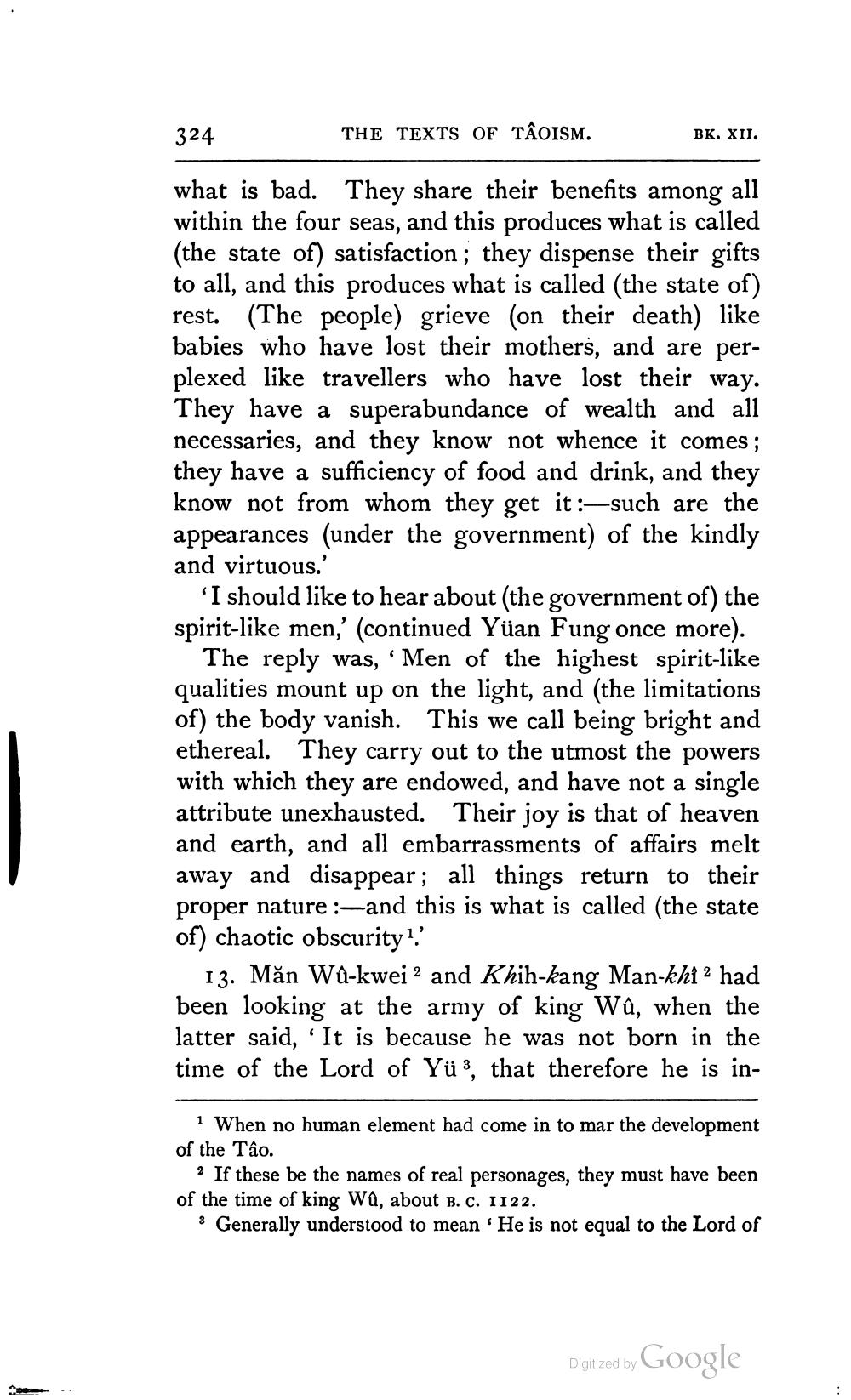________________
324
THE TEXTS OF TÂOISM.
BK. XII.
what is bad. They share their benefits among all within the four seas, and this produces what is called (the state of) satisfaction; they dispense their gifts to all, and this produces what is called (the state of) rest. (The people) grieve (on their death) like babies who have lost their mothers, and are perplexed like travellers who have lost their way. They have a superabundance of wealth and all necessaries, and they know not whence it comes; they have a sufficiency of food and drink, and they know not from whom they get it:such are the appearances (under the government) of the kindly and virtuous.'
'I should like to hear about (the government of) the spirit-like men,' (continued Yüan Fung once more).
The reply was, ' Men of the highest spirit-like qualities mount up on the light, and (the limitations of) the body vanish. This we call being bright and ethereal. They carry out to the utmost the powers with which they are endowed, and have not a single attribute unexhausted. Their joy is that of heaven and earth, and all embarrassments of affairs melt away and disappear; all things return to their proper nature :-and this is what is called (the state of) chaotic obscurity?'
13. Măn Wa-kwei2 and Khih-kang Man-khi 2 had been looking at the army of king Wû, when the latter said, 'It is because he was not born in the time of the Lord of Yü 3, that therefore he is in
1 When no human element had come in to mar the development of the Tâo.
2 If these be the names of real personages, they must have been of the time of king Wû, about B. C. 1122.
3 Generally understood to mean. He is not equal to the Lord of
Digitized by Google




